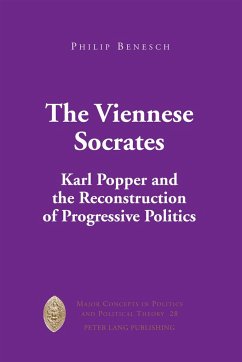
Utopianism and Marxism
Versandkostenfrei!
Versandfertig in 6-10 Tagen
59,10 €
inkl. MwSt.

PAYBACK Punkte
0 °P sammeln!
This is a reissue of an influential text that was first published in 1987, to which the author has added an introduction reflecting on the work twenty years after publication. The grounding assumption of the book is that an element of utopianism is a necessity in any political thinking, and that a self-conscious utopianism can generate a richer level of theory and practice. The text then follows the chequered career of utopianism in the Marxist tradition, arguing that Marxism has been unable to do without a utopian dimension but for various reasons has often resisted acknowledging this fact. I...
This is a reissue of an influential text that was first published in 1987, to which the author has added an introduction reflecting on the work twenty years after publication. The grounding assumption of the book is that an element of utopianism is a necessity in any political thinking, and that a self-conscious utopianism can generate a richer level of theory and practice. The text then follows the chequered career of utopianism in the Marxist tradition, arguing that Marxism has been unable to do without a utopian dimension but for various reasons has often resisted acknowledging this fact. It examines the origins of the Marxist critique of utopianism, and the various ways, either covertly or overtly, in which the utopian was reinserted into the tradition. It looks at the utopian socialist predecessors of Marxism, the ambiguous critique of the utopian developed by Marx and Engels, the complex debate over utopianism in the Second International, the authoritarian socialism that emerged in the Soviet bloc, and the consciously utopian thought of Ernst Bloch, Herbert Marcuse, Rudolf Bahro, and André Gorz. Throughout, the book seeks to combine rigorous scholarship with a commitment to a utopian frame of mind.














